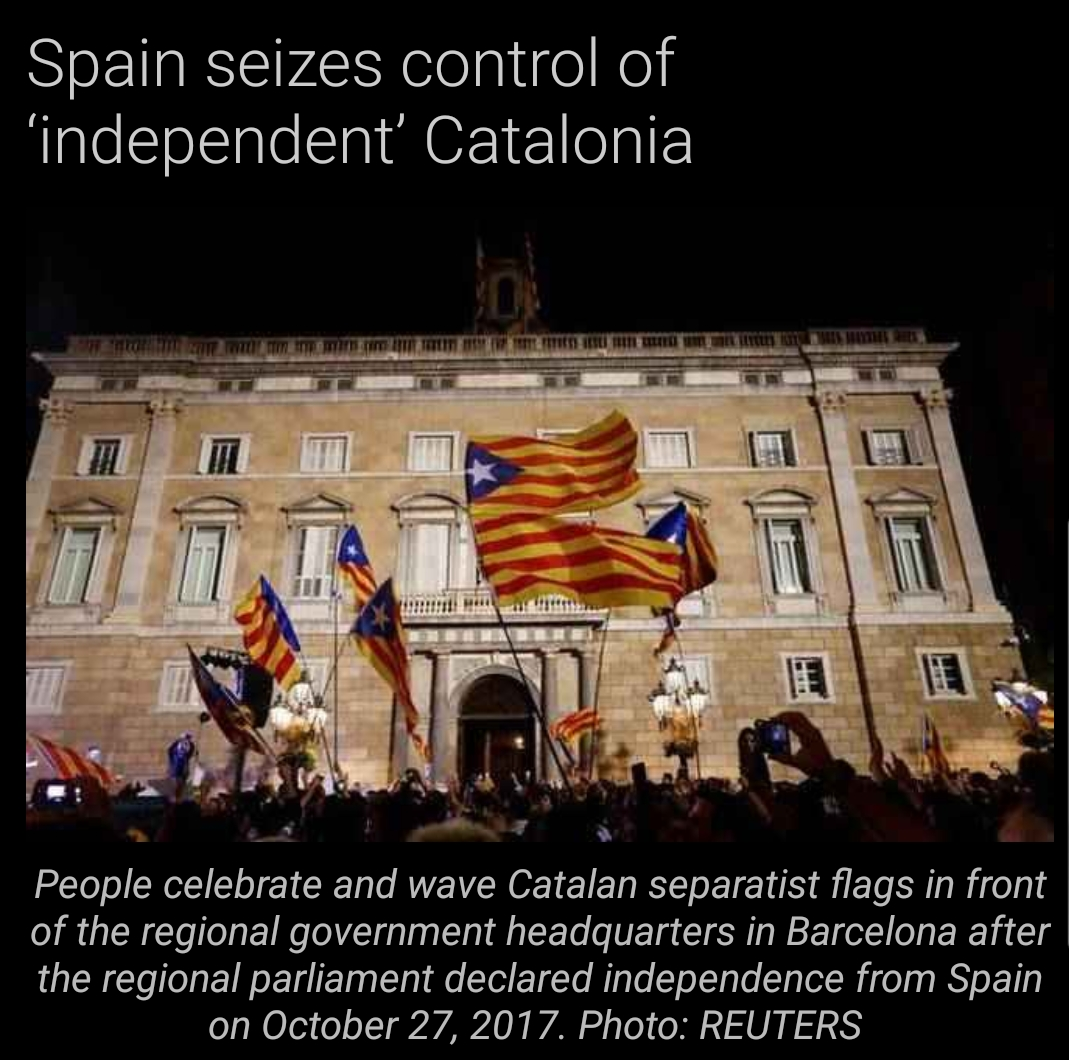The central government has curtailed autonomy in the region for the first time since dictator Francisco Franco’s repressive 1939-75 rule

Spain moved on Saturday to assert direct rule over Catalonia, replacing its executive and top officials to quash an independence drive that has pushed the country into uncharted waters and sent shock waves through Europe.
As thousands rallied in Madrid in support for Spanish unity, a government notice officially deposed regional leader Carles Puigdemont and his deputy Oriol Junqueras. The announcement placed Deputy Prime Minister Soraya Saenz de Santamaria in charge of administering the region.
It is the first time the central government has curtailed autonomy in the region since dictator Francisco Franco’s repressive 1939-75 rule.
Police chief fired
Madrid also fired regional police chief Josep Lluis Trapero, seen as an ally of Catalonia’s separatist leaders, and put the interior ministry in charge of his department in a move likely to further escalate tensions in Spain’s worst political crisis in decades.
A day after Catalan lawmakers voted to break with Spain, the regional and national flags still fluttered side by side over the seat of the Generalitat, the name for the regional government.
The streets of Barcelona were largely empty after a night of firework-lit celebrations, and security was reinforced around the regional headquarters of the national police.
Y viva Espana
Some 3,000 people gathered on Madrid’s central Plaza Colon, waving the Spanish flag as loudspeakers blared the popular song “Y viva Espana” (long live Spain).
A small child was pushed by its father in a buggy sporting a sign proclaiming: “Together”, and some in the crowd wave placards calling for Puigdemont to be jailed.
“It is a shame what happened in Catalonia,” lamented anti-secessionist protester Carlos Fernandez, a 41-year-old mining engineer.
Moving to quash what he termed an “escalation of disobedience”, Prime Minister Mariano Rajoy responded to Friday’s Catalan vote by assuming sweeping powers granted to him by the Senate under a never-before-used constitutional article designed to rein in rebels among Spain’s 17 regions.
He fired the government and parliament and called December 21 elections to replace them.
The Spanish government has received unwavering support from the U.S. and its allies in the European Union. The bloc is increasingly wary of nationalistic and secessionist sentiments.